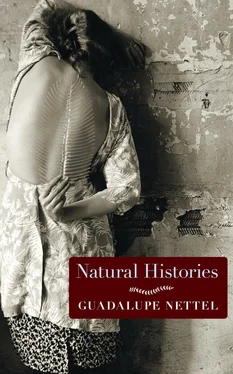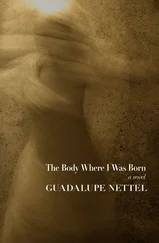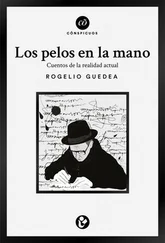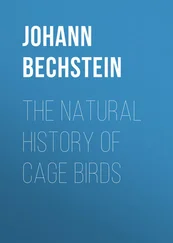Unlike my mother during my childhood, I decided to remain with the fungus forever. To live with a parasite is to accept the occupation. Any parasite, as harmless as it may be, has the uncontainable need to spread. It is important to limit it, or else it will invade us entirely. I, for example, have not allowed mine to reach my groin, nor any other part beyond my crotch. Philippe has adopted an attitude toward me similar to mine toward the fungus. He never allows me beyond my territory. He calls my home whenever he needs to but I cannot, under any circumstance, call his. It is he who decides when and where we meet and who always cancels our trips if his wife or daughters mess up our plans. In his life, I am an infallible ghost he can summon. In mine, he is a free spirit that sometimes appears. Parasites — I understand this now — we are unsatisfied beings by nature. Neither the nourishment nor the attention we receive will ever be enough. The secrecy that ensures our survival often frustrates us. We live in a state of constant sadness. They say that to the brain, the smell of dampness and the smell of depression are very similar. I do not doubt it’s true. Whenever the anguish builds in my chest, I take refuge in Laval, like turning to a psychologist or a sedative. And though not always immediately, he almost never refuses me. Nevertheless, as to be expected, Philippe cannot stand my neediness. Nobody likes to be invaded. He already has too much pressure at home to tolerate this scared and pained woman he has turned me into, so different from the one he met in Copenhagen. We have seen each other again a few times, but the trysts are not like before. He’s scared too. His responsibility in my new life is weighing him down and he reads, even in my most innocent remarks, the plea for him to leave his wife. I realize this. That is why I have lessened, at the cost of my health, my imploring. But my need remains bottomless.
It’s been more than two years since I assumed the nature of an invisible being, which barely has a life of its own, that feeds on memories, on fleeting encounters in whatever part of the world, or on what I am able to steal from another organism that I yearn for to be mine and in no way is. I still play music but everything I play seems like Laval, sounds like him, like a distorted copy nobody cares about. I don’t know how long it’s possible to live like this. But I do know that some people do for years and that in this dimension they are able to build families, entire colonies of fungi spread far and wide that live in secrecy and then one day, just when the infested being dies, raise their head during the funeral and make themselves known. That will not be me. My body is infertile. Laval will have no descendants with me. Sometimes I think I catch, in his face or the tone of his voice, a certain annoyance similar to the repulsion my mother felt for her yellowed toe. So despite my enormous need for attention I do everything I can to come off inconspicuous, so that he thinks of my presence only when he desires or needs it. I can’t complain. My life is tenuous but I do not want for nourishment, even though it comes one drop at a time. The rest of the time I live locked up and motionless in my apartment where I have barely raised the blinds in the past few months. I like the dimness and the dampness of the walls. I spend a lot of time touching the cavity of my genitalia — that crippled pet I glimpsed as a child — where my fingers awaken the notes Laval has left there. I’ll stay like this as long as he lets me, forever confined to one piece of his life or until I find the medicine that, at last, once and for all, frees us both.
My family, like many in this city, has diverse roots. Dad was born in China, but at two years old he was adopted by a French couple who brought him to Paris and raised him in their culture. They named him Michel Hersant, which is also my name. Mom, on the other hand, was born near Alkmaar in the Netherlands and grew up in a Protestant household until she was nineteen. She lived two-thirds of her life here and was able to completely lose her accent. What she never let go of was her culinary ways — she loved her bread and cheese and her good pastries — and her morals. As was the custom of her hometown, she left the curtains open to show the world that we had nothing to hide. My father didn’t practice any religion. She was an actress, he, a playwright. They met in Latin America during the staging of a play he had written and in which she’d been cast as the lead. That was six years before I was born, that is, almost forty years ago. Since then they were never apart, except during the few times my mother went back to visit her country or traveled for work. Throughout my entire childhood and part of my adolescence my parents formed an indivisible block, a wall without a single crack against which it was impossible to rebel. More difficult for me than the mixing of origins and cultures was being the only child of a couple so fused together. I believe this union was the product of the very peculiar dynamic between them. Despite the love my grandparents showed my father, there was still something orphan-like about him. To him, his wife was another fake mother who was growing him, in his professional life as much as his love life, in a psychological uterus from which he’d never be expelled. Building this house in Montreuil had been her initiative, and it was her masonry skills, typical of Dutch women, that kept it standing for years. I’d always assumed they’d grow old together, in love: he increasingly Asian, gently watering the young plants in his garden; she baking pastries in her checkered apron like the plump little old women in fairy tales. However, there was a moment that cast doubt over all my assumptions. I, who had been intently observing them for seventeen years, started noticing in them alarming changes. Movements in the lives of human beings, according to an eminent Chinese oracle, begin below the surface, and therefore their origins are difficult to place in time. So I can’t say exactly when the signs of discontent first appeared in my father’s behavior. Nor do I know if it had always been there, dormant inside him, or if my mother and I, external catalysts, had caused it. What I can say is that as he aged he began to show an interest in his Asian roots he’d never had before, a kind of personal and secret quest he didn’t want to share with us.
The change became evident after his first trip to China. An important theater in Beijing decided to stage The Woman of the Link , his most famous piece, and they invited him to oversee the production. As his name was French and his entire career had developed here, nobody imagined that the author of that very Western text would have their features and skin color. That trip dealt a heavy blow to my father’s identity. His stay, which was supposed to last two weeks, was twice extended and ended up being a month and a half. According to him, he was learning a lot about himself and couldn’t allow himself to return prematurely. What did he mean by that? He never really gave us an explanation. My mother and I thought he was trying to find out the whereabouts of his biological parents or, if they had died, the fate of other members of his family. But he proved our theory false when he came back.
Dad returned from Beijing noticeably affected. Not only was he all of a sudden fragile and withdrawn, but even his physical appearance had undergone a transformation. He had more gray hairs and had lost several pounds. But mostly it was the desolate expression that rendered his face unrecognizable. Soon after he begin building, all by himself, a study in our attic that from the start looked to me and my mother like — as much as he denied it — a kind of pagoda. It was the first time I can remember that her eyes sought complicity in mine. Her look was cheerful but also worried about her husband’s mental health; a worry I of course shared. When he finished his study Dad moved most of his books up there and did the same with those he later acquired. His behavior made me think of emperors buried with all their belongings in monuments built solely for that purpose. Every book he bought after that had to do with his new fascination; theater, novels, philosophy, history, astrology, Confucianism, and Buddhism, usually in English editions, were shipped to our house and as soon as he took them out of the box he brought them straight to his study. My mother, at that point still humoring him, joked that her husband had entered a rebellious phase necessary for his emancipation. What’s true is that Dad didn’t spend as much time with her. Instead of talking to her at night or rehearsing lines with her in their shared studio as he used to, he spent hours locked up in his new refuge. Seeing him so reserved and silent also reminded me of monks who seek solitude in the mountains so that they can meditate. However, my mother did not see things in quite the same way. She soon abandoned her tolerance and began fuming whenever he appeared in the window of the pagoda, contemplating the evening with the faraway look that never left his eyes anymore.
Читать дальше












